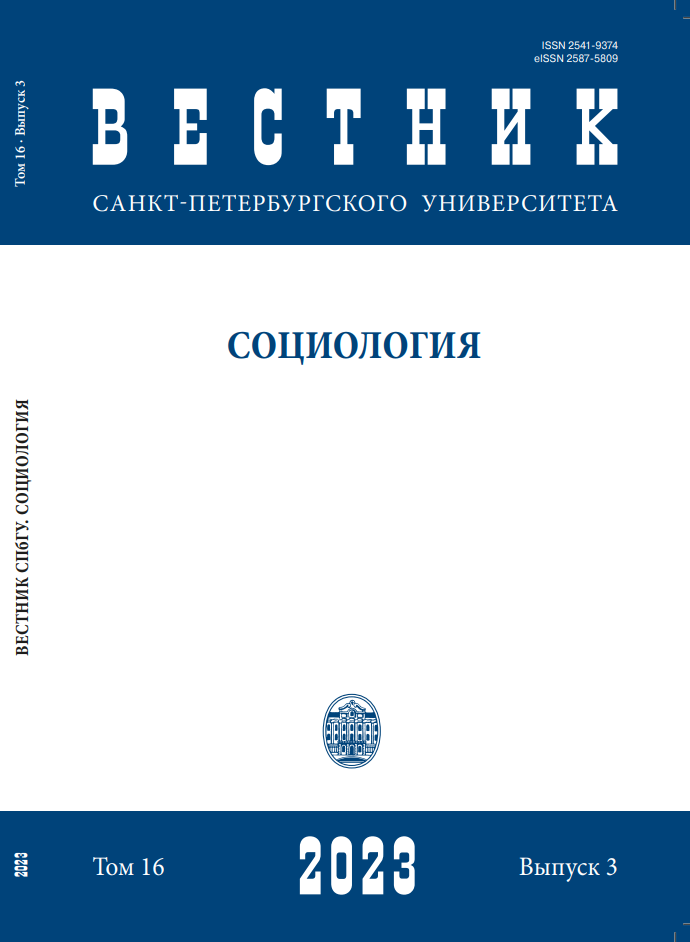Mediatization of health in the Russian blogosphere
DOI:
https://doi.org/10.21638/spbu12.2023.305Abstract
Due the fast development of information and communication technologies, social reality is increasingly transforming into a special media space, permeated with a variety of channels and means of communication. Its characteristic features include such as: the convergence of virtual and real, public and private, networking of social interactions, a certain media language, plurality of content and special media technologies for its construction and broadcasting, which allow to effectively influence a wide audience of new media. Modern media extend their transformative ability to all spheres of public life, influencing their institutional, regulatory and legal structure and established practices. The health sphere is not an exception. Under the conditions of mediatization, health is considered as a media product. The image of health and its maintenance practices constructed by modern media set certain attitudes and patterns of perception of health risks, diseases and ways to prevent them, which, in the process of their articulation through sedimentation and internalization, form social representations and behavior of the population in the field of health. At the same time, these samples often have an ambivalent and even destructive influence. Blogs are one of the dominant media consumption formats today. The article presents an analysis of mediatization of health on the base of studying the Russian blogosphere.
Keywords:
health, mediatization, blogosphere, blogs
Downloads
References
Downloads
Published
How to Cite
Issue
Section
License
Articles of "Vestnik of Saint Petersburg University. Sociology" are open access distributed under the terms of the License Agreement with Saint Petersburg State University, which permits to the authors unrestricted distribution and self-archiving free of charge.




